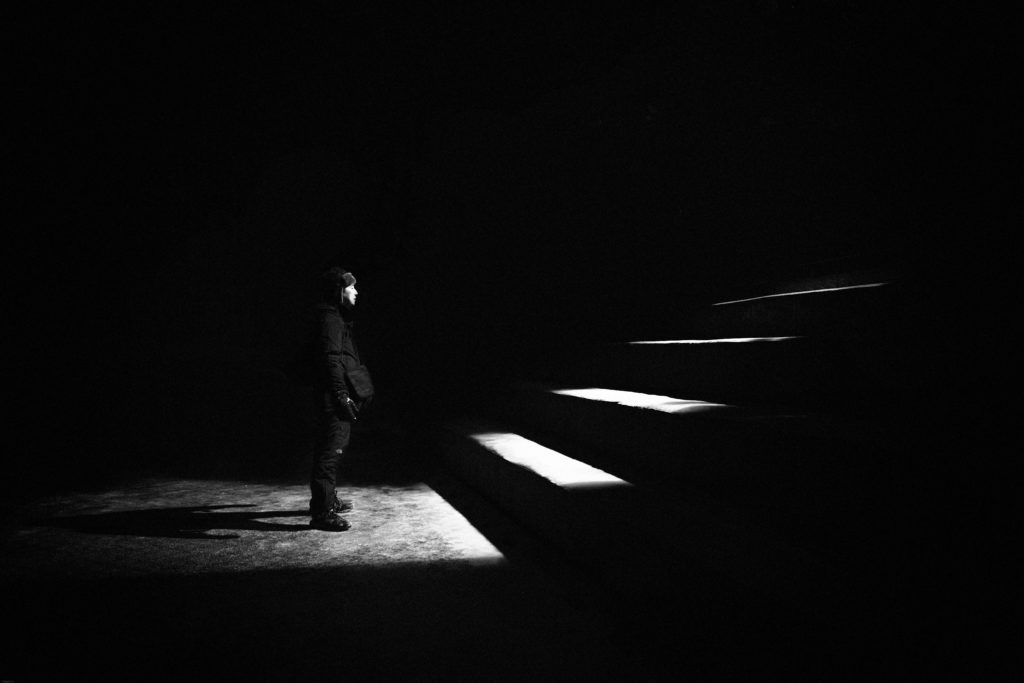Recently, I heard a great story of humility about the former President of Pepsi, Indra Nooyi. After Indra became President of this massive company, she came home, excited to share the news with her family. But as she walked in the door, her mom told her to run and get some milk because they were out. She tried to share the big news but her mom insisted that she run the errand. Nooyi was livid. When she returned from getting the milk, she expressed her anger to her mom, “I’ve been named President of PepsiCo. And all you want me to do is go out and get milk.”
Then her mom said a phrase that I love. She said, when you get home, “leave that crown in the garage.”
She had climbed the ladder and found herself at the top but her mom reminded her of her real identity. She was a wife, a mother, and a daughter. When she received this promotion, nothing changed about her true identity. This was her real self. Her family didn’t need a President at home.
Hierarchies and Ladders
Hierarchies have always existed in human culture. They are a basic principle of society. People strive to reach a place of position and influence — a place of achievement that sets them above others. In the old days, one way you knew that you had reached the top of this hierarchy, is by receiving a crown. You were royalty. You were influential.
We still have hierarchies. They just look different. We climb the ladder, striving to reach a place of influence and wealth.We still have crowns. These can be objects, like cars or homes. They can titles, like CEO or Senator or chief of surgery.
You may not be that ambitious. I have no desire to be a politician or Fortune 500 CEO. But still, every job, every community, every organization has a ladder and we all want to get to the top.

Secrets of CEO’s
Of course, there are plenty of reasons to climb the ladder — money, security, titles, the thrill of succeeding. One of the main motivations is status. We find our societal worth by the way others view us. We see ourselves through the lens of others. How do they perceive me? The higher I climb the ladder, the more likely it is that others will see me as talented, competent, brilliant, etc.
In his TEDx talk, Shirzad Chamine speaks about asking a group of 100 CEO’s and presidents to anonymously write down “a secret they never shared about how they really feel inside.” Here are some of the confessions:
- I am rarely at peace with myself
- I am feeling sad and lonely and the anti-depressants
- I am on don’t seem to be working
- My air of confidence is falseI often feel like I’m a fraud
This is the great illusion of status and positions of influence. Those of us on the lower rungs of the ladder look up and think, “those people on the higher rungs of the ladder have it figured out.” Maybe peace and contentment will come once I reach those levels. It’s an illusion. Our identity doesn’t change as our status changes. We are still the same people, dealing with the same issues.
This begs the question: is there a better way to live? Is there a way to escape this desperate climb up the ladder?
A Correct View of Ourselves
“If you’re not humble, life will visit humbleness upon you.”
Mike Tyson
Humility is a boring word and incorrectly used most of the time. We all know we’re supposed to be humble, so we’ve learned how to say things in a way that sounds humble, while still elevating ourself and our achievements.
Exhibit A: The #humblebrag
In case you don’t know what a Twitter humble-brag is, it’s when a person wraps a brag in a package of false humility — using culturally acceptable self-deprecation, while still letting us know how great they are.
A few highlights:
- “Totally walked down the the wrong escalator at the airport from the flashes of the cameras…go me.”
- “The fact that Wikipedia lists me as a notable alumnus of my college speaks ill of the reliability of crowd sourced information.”
- “I just stepped on gum. Who spits gum on a red carpet?”
Instead of this version of humility, I prefer this definition:
A modest view of one’s own importance.
Humility is all about our view of ourselves; our perspective. It is having a right-sized view of ourself in relation to others. Regardless of my job title or skill level, I am no better than my fellow brother or sister.
This was one of the most compelling things about Jesus. Everyone expected the Messiah to come as a conquering king — to lead Israel to the top of the global ladder with power and force.
Instead, the Messiah came as a servant. His defining act in history was also the greatest act of humility. He humbled himself to death — even death on a cross. This was a death reserved for criminals, the people at the bottom rung of the ladder. This is how Jesus decided to show true power— by humbly giving himself for others.
So, the question is: how do we display the same kind of humility in our day, in this world?
Calling vs. Career
Ambition is not a bad thing. It’s a core human quality that helps us get out of the bed in the morning and make beautiful things.
Ambitious people create vaccines, water filtration systems, and moving pieces of art. They solve hard societal problems and keep people safe. We need ambition.But there is a difference in the ambition to create value and meaning and the ambition to accumulate status or possessions.
I would say this is a difference between a calling and a career.A calling compels us. A calling serves others. A calling creates
value
meaning
and beauty.
A career is a means to get status, wealth, and security. Or worse, it’s something you do because you think you are “supposed to.”
Some questions to consider:
- Am I pursuing a calling or a career?
- Am I doing work that creates value for others? Or am I collecting a paycheck?
- Do I leave my crown in the garage?
- How can I live in a way that puts my family and others before my title, status, or position?
More than ever we need people of humility. People who pursue a calling, who desire to serve our world. We already have enough striving, status-hungry, ladder-climbers.
Our world needs you to climb down the ladder.






